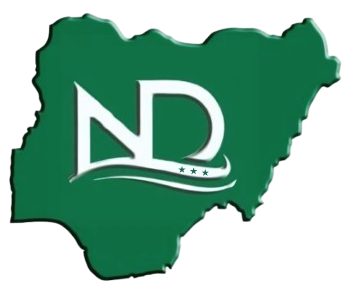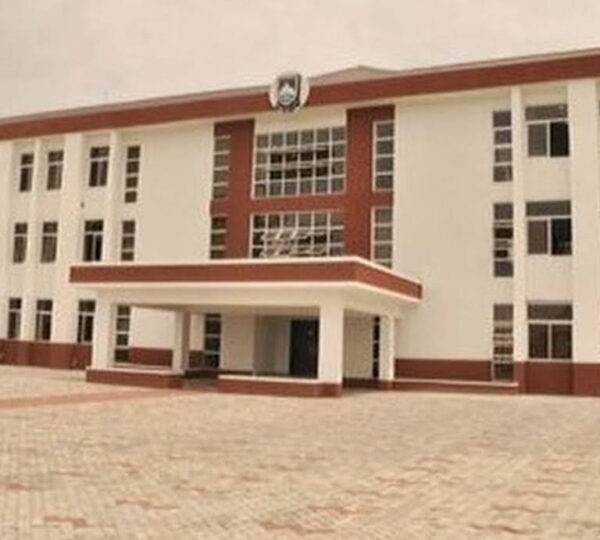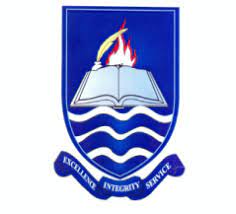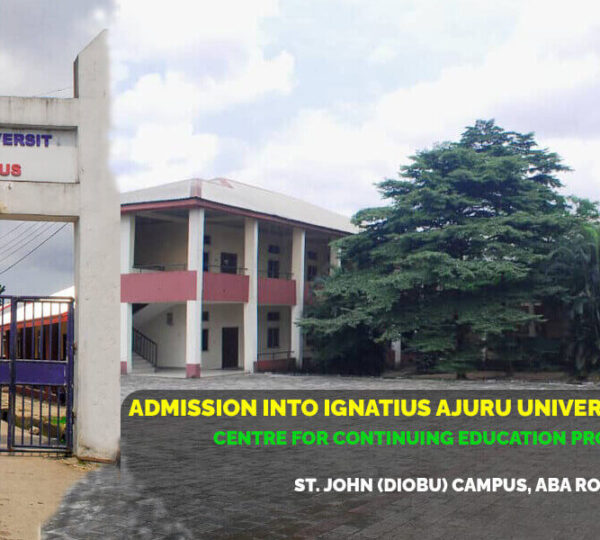- Education
- Port Harcourt, Rivers, Nigeria
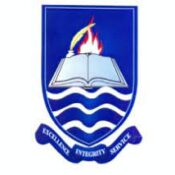
Ignatius Ajuru University Of Education
About Us
Ignatius Ajuru University of Education started as Advanced Teachers’ Training College on 14th June 1971 under the headship of Dr William Maxwell Jnr., a USAID representative who served in Rivers State.
The College was established out of the need to check the acute shortage of trained teachers for the rapidly expanding programmes of post-primary education in Rivers State after the civil war in 1970.
However, it was upgraded to Rivers State College of Education in 1975 following the promulgation of Edict No 1 on 25th February 1975. Following this transformation, Mr Emmanuel Aguma, who was appointed Principal in January 1975 became the first Provost of the new College.
The College had its first graduation ceremony on 11th March 1978 where four sets of students totalling 462 received the Nigeria Certificate in Education.
In1982, the College admitted the first candidates for the Bachelor of Education degree programme in affiliation with the University of Ibadan.
It is noteworthy that of all the Colleges of Education affiliated with the University of Ibadan, the then Rivers State College of Education was the only one that offered the Bachelor of Education degree programme.
However, to actualise the vision of the founding fathers of the College to become an autonomous degree-awarding institution, it was again upgraded to a University following the passage of the University of Education Law No. 8 of 2009 by the Rivers State House of Assembly on 15 October 2009.
The official pronouncement was made on October 20, 2009, by His Excellency, Rotimi Chibike Amaechi, the governor of Rivers State, but was renamed Ignatius Ajuru University of Education in 2010 in honour of the late Ambassador Ignatius Ajuru, a one-time Chairman of the institution’s Governing Council, who championed the upgrading of the College to a University.
The institution is the thirty-fifth (35th) state-owned University in Nigeria.
The University has three campuses located in Rumuolumeni (the main campus and seat of administration), St John Diobu campus, and Ndele campus in Obio/Akpor, Port Harcourt, and Emuoha Local Government Areas respectively.
Currently, the University has seven Faculties. They are the Faculty of Agriculture, Faculty of Education, Faculty of Humanities, Faculty of Management Sciences, Faculty of Natural and Applied Sciences, Faculty of Social Sciences and Faculty of Vocational and Technical Education.
There are fifty (50) teaching departments, seventy-four (74) Professors, and other teaching staff.
The majority of the Programmes of the institution are fully accredited by the National Universities Commission (NUC), Nigeria’s Universities regulatory body.
This was made possible by the Visitor to the University and the Rivers State Governor, His Excellency, Barrister Nyesom Ezenwo Wike, whose love for youth development and quality education is unquestionable.
PHILOSOPHY
The development of adequate human resources that can function effectively as classroom teachers and managers of education at all levels, through teaching, research, and service. The development of the prospective teachers and educational managers through exposure to knowledge in the areas of academic endeavour and other fields of general knowledge considered relevant for the professional development of educational managers in a rapidly changing industrial and technological world.
VISION
The vision of the faculty is to develop staff to full capacity and produce teachers that will be conscientiously relevant in the Humanities, Social Sciences, Arts, Pure and Applied Sciences, Technology, Management and Business as well as research, through the provision of sound foundational courses and skills in Education.
MISSION
The assignment is the production of teachers who would be effective in the classroom as well as in the socio-political, psychological, and economic development of the learner in their field of professional endeavours. Teachers that are studious in research and knowledge dissemination. This mission will be achieved through the following:
Quality teaching and research
Adequate supervision and monitoring of both teachers and students
Training and retraining of teachers for effectiveness and efficiency.
Emphasis on character training and modelling
Adequate provision of infrastructural and human resources for quality assurance.
Internet and other technological/vocational programmes for teachers and students
Proper discipline and reward measures
Staff and students’ welfare services and programmes.
OBJECTIVES
To produce professional teachers who will stand the test of time
To produce versatile managers who will occupy strategic positions in schools and other educational settings and organization
To produce teachers with good knowledge of effective organizational management practices
To produce graduates that will function effectively as school administrators and teachers per excellence
To produce skilled personnel that will serve as educational planners, policy designers and decision makers in school
COURSES OFFERED
- Accountancy/Accounting
- Accounting
- Adult Education
- Adult Education And Communuity Development
- Agricultural Science & Education
- Biology
- Business Education
- Chemistry
- Computer Education
- Computer Science
- Early Childhood Education
- Economics
- Education & Accounting
- Education & Biology
- Education & Chemistry
- Education & Economics
- Education & English Language
- Education & French
- Education & Geography
- Education & History
- Education & Integrated Science
- Education & Mathematics
- Education & Music
- Education & Physics
- Education & Political Science
- Education & Religious Studies
- Education & Social Studies
- Education And Christian Religious Studies
- Education Fine & Applied Arts
- Educational Management
- English Language
- Fine & Applied Arts
- French
- Geography
- Guidance & Counselling
- Health & Safety Education
- History & Diplomatic Studies
- Home Economics & Education
- Human Kinetics
- Integrated Science (Double Major)
- Library & Information Science
- Management
- Management
- Marketing
- Marketing
- Marketing
- Mathematics
- Music
- Office & Information Management
- Office And Information Management
- Physics
- Political Science
- Primary Education Studies
- Religious Studies
- Secretarial Education
- Sociology
- Special Education
- Teacher Education Science:
- Technical Education
- Theatre Arts
Business Amenities
- Car Parking
- Funding: State
Tags
Contact Information
Opening Hours
Contact Business
Contact Business
Additional Information
Additional info


